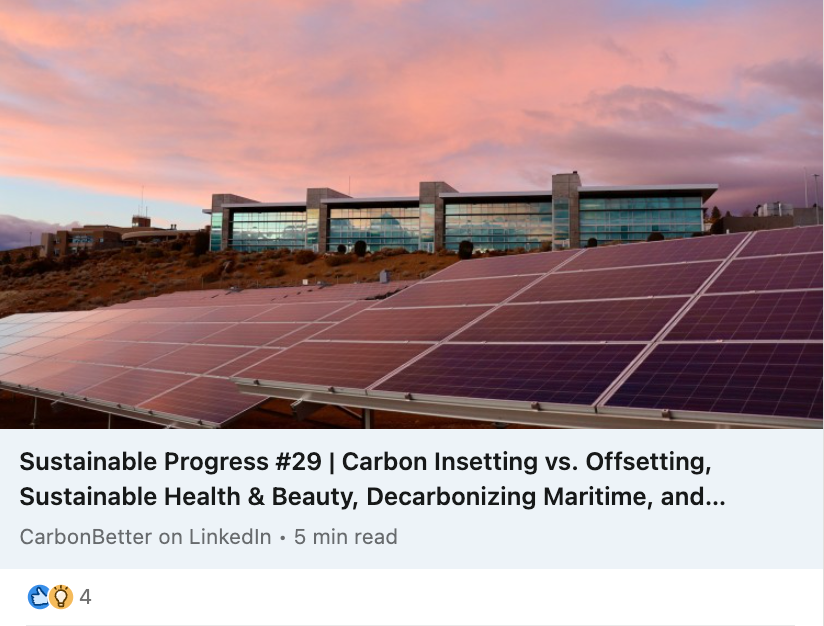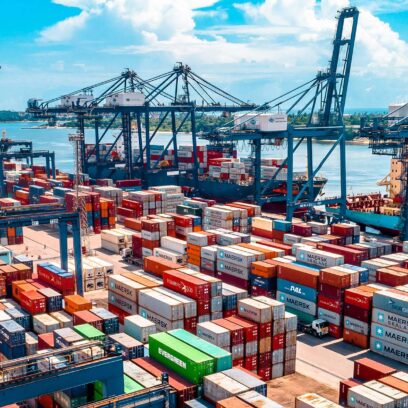California Senate Bill 1036 and Its Potential Impact on Voluntary Carbon Offsets

CA SB 1036 seeks to refine and strengthen the standards by which carbon offsets are verified and certified—and it could introduce new challenges for companies.
Senate Bill 1036 (SB 1036) seeks to refine and strengthen the standards by which carbon offsets are verified, marketed, and enforced under state law. This bill was originally introduced in the California (CA) legislature as SB 390 in October 2023 and builds upon CA Assembly Bill (AB) 1305. SB 1036, as written, subjects voluntary carbon offsets to the state’s False Advertising Law. While the bill intends to address concerns around the potential for misuse in the voluntary carbon market, it could potentially chill the voluntary carbon market or create “significant turmoil,” as CA Governor Gavin Newsom previously warned when he vetoed SB 390 last fall despite bipartisan support for the bill.
UPDATE ON CALIFORNIA SB 1036 As of July 1, 2024, SB 1036 has been withdrawn from the current legislative session. State Senator Monique Limón requested its removal before a crucial Assembly Natural Resources Committee hearing. This decision halts any progress on SB 1036 for now. The bill faced substantial opposition from business groups and carbon registries concerned about its impact on the voluntary carbon offset market. Future legislative efforts may revise the bill to address these concerns and possibly reintroduce it in a future session.
Key Provisions of SB 1036
If passed, SB 1036 would make it “unlawful for a person to certify or issue a voluntary carbon offset, to maintain on a registry a voluntary carbon offset, or to market, make available or offer for sale, or sell a voluntary carbon offset if the person knows or should know that the greenhouse gas reductions or greenhouse gas removal enhancements of the offset project related to the voluntary carbon offset are unlikely to be quantifiable, real, and additional.”
As written, here is what each criterion in the proposed bill entails:
- Quantifiable: Carbon reductions must be measurable and verifiable against a clear and robust project baseline.
- Real: Reductions should result from specific actions that directly impact reducing or removing GHGs.
- Additional: The GHG reductions should exceed what would naturally occur in a “business as usual” scenario and must not be required by any existing laws.
Enforcement and Legal Implications
The bill states that non-compliance with its criteria could result in civil penalties under the False Advertising Law. However, its vague language, particularly the determination of what a person “knows or should know,” opens the door to legal risks that many participants may not want to take and also may make enforcement difficult to impossible.
Most reputable carbon project registries and programs employ reasonable assurance as their verification standard, making it challenging to prove bad faith conclusively. The bill also lacks precise definitions regarding its applicability: whether it targets only companies based in California or any company conducting business in the state. Although well-intentioned, the bill could adversely affect those in California and the entire voluntary carbon market.
Adapting to California Senate Bill 1036 for Carbon Offset Providers
This table is designed to help companies understand the specific requirements of SB 1036, as written, and provide examples of actions and practices that could aid in compliance. By aligning with these criteria, companies can better navigate the new regulatory environment and enhance the credibility of their carbon offset projects should this bill pass and be signed into law.
| Requirement | Definition | Compliance Strategy | Example |
| Quantifiable | “[T]he ability to accurately measure and calculate GHG reductions or GHG removal enhancements relative to a project baseline in a reliable and replicable manner […].” | Implement robust measurement and verification systems. | Use satellite imaging and AI algorithms to track forest growth in reforestation projects. |
| Real | “[T]hat GHG reductions or GHG enhancements result from a demonstrable action or set of actions […].” | Ensure that projects have direct environmental impacts. | Implement a project that replaces coal-fired plants with solar power generation. |
| Additional | “[G]reenhouse gas emission reductions or removals that exceed any greenhouse gas reduction or removals otherwise required by law, regulation, or legally binding mandate, and that exceed any GHG reductions or removals that would otherwise occur in a conservative business-as-usual scenario […].” | Develop projects that go beyond regulatory requirements. | Create an advanced recycling program that reduces emissions beyond state mandates. |

Subscribe to our newsletter
Get all of our blog posts, webinars, and event updates bundled together into one newsletter once every two weeks. Click below to signup on LinkedIn.
Implications for Businesses
We advise businesses involved in the voluntary carbon market to stay informed about the progress of the bill and its final language, if passed, to determine how it might impact them specifically. At CarbonBetter, we’ve been following the bill closely and will update this post as new information arises.
Navigating the Challenges of SB 1036 with CarbonBetter
SB 1036 aims to enhance the credibility and effectiveness of the voluntary carbon offset market. However, it may negatively impact businesses striving for sustainability and, as it is currently written, potentially create a market environment of “significant turmoil” such that many participants in the broader voluntary carbon market may shy away from activities that would subject them to potential SB 1036.
At CarbonBetter, we are dedicated to helping our clients manage these challenges, ensuring that their sustainability efforts remain impactful and comply with recent legislative changes. If you need assistance at any stage of your sustainability journey, whether it's complying with proposed laws like SB 1036 or any other aspect, we are here to help. Contact us today to get started.
California Senate Bill 1036 (SB 1036) aims to enhance the standards for verifying, marketing, and enforcing voluntary carbon offsets. The bill requires that greenhouse gas (GHG) reductions or removals related to carbon offsets be quantifiable, real, and additional. It seeks to ensure transparency and integrity in the carbon offset market, addressing potential misuse while potentially imposing new compliance challenges for businesses.
According to SB 1036, "quantifiable" means "[T]he ability to accurately measure and calculate GHG reductions or GHG removal enhancements relative to a project baseline in a reliable and replicable manner [...]" This definition emphasizes the need for robust measurement and verification systems to ensure that carbon offsets represent real environmental benefits.
"Additional" GHG reductions, as defined by SB 1036, are "[G]reenhouse gas emission reductions or removals that exceed any greenhouse gas reduction or removals otherwise required by law, regulation, or legally binding mandate, and that exceed any GHG reductions or removals that would otherwise occur in a conservative business-as-usual scenario [...]" This means that the reductions must go beyond what would normally happen without the offset project, ensuring they provide extra environmental benefits.

About the Author
Dominic Sung is a Director of Business Development for CarbonBetter. He joined the company in 2022 with a focus on growing the Climate Services business by partnering with clients on their sustainability journey to measure, report, and reduce their emissions in a transparent, traceable, and pragmatic way.



